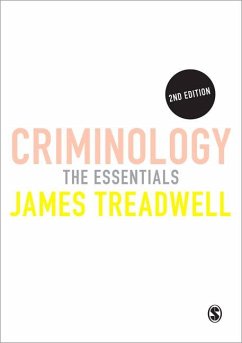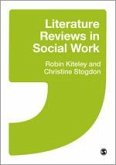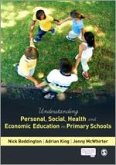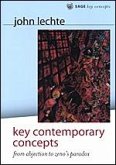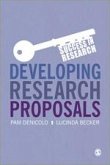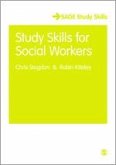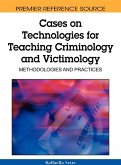This is an essential introduction to undergraduate studies in criminology. Short, clear and concise, it provides a comprehensive overview of the key themes covered on your criminology course. The second edition provides: * Summaries of key course content, including new sections on race and ethnicity, cybercrime, ordinary crime, state crime, global and comparative criminology, green criminology and zemiology * A helpful study skills section with extensive advice on how to write essays and pass exams, including new sections on how to avoid plagiarism and how to find, read and use journal articles * Recent international case studies drawn from the United Kingdom, Australia, Africa and The United States * An all new providing guides to further reading and links to relevant blogs, journal articles and useful websites Criminology: The Essentials is an indispensible learning tool. As well as mapping out course content in a coherent and engaging way, it offers helpful hints and tips for getting the most out of your studies.
Hinweis: Dieser Artikel kann nur an eine deutsche Lieferadresse ausgeliefert werden.
Hinweis: Dieser Artikel kann nur an eine deutsche Lieferadresse ausgeliefert werden.
This book is an excellent springboard into the world of criminology and academic study.
It has been on the essential reading list for all my 1st year criminology undergraduate students since it was published, and this revised and expanded 2nd edition brings a welcome update, including useful new sections on race and hate crime and cybercrime.
The book is a truly student-friendly introduction for those new to the subject area. Not only does it provide an understandable overview of key criminological concepts and core issues, but crucially it links these to the achievement of degree-level learning and assessment, through facilitating critical thinking and clearly explaining how to best develop university study skills.
Dr Kate Williams
University of Wolverhampton
Criminology recruits undergraduate students from all sorts of backgrounds. As they enter their first year they confront a dauntingly complex and diverse discipline. Therefore, a no-nonsense basic primer is an essential survival tool. For me, Treadwell's book, which covers everything from underlying philosophical principles to exam tips, is the most comprehensive and accessible basic primer on the market.
Steve Hall
Professor of Criminology, Teesside University
The second edition of Criminology: The Essentials is just what it promises - a no-nonsense, straightforward and immensely engaging guide to the fundamental issues and concerns facing criminologists today. James Treadwell's enthusiasm and knowledge shine through every page and this lively little volume will prove an indispensable introduction for countless students of criminology at schools, colleges and universities.
Yvonne Jewkes
Professor of Criminology, University of Leicester
This is a welcome updating of an extremely useful text for undergraduate students in criminology. The work has responded to feedback and developments in more contemporary aspects of criminology, and it continues to emphasise to students the need to develop critical thinking and analytical skills, so if offers clear insight into criminology and also guidance for study at higher education level.
James Treadwell has an engaging writing style and he places explanations of offending and how society responds to this in a context which students can relate to and grasp. This is vital in an introductory text and it offers a very good, comprehensive start to providing students with an understanding of criminology and criminal justice policy.
The core parts of the text continue to guide students through key concepts, theory and prominent authors who have offered these theories, with continued emphasis on critically analysing these views and ensuring students understand the importance of reading beyond mandatory and introductory texts.
Susie Atherton
Senior Lecturer, De Montfort University
It has been on the essential reading list for all my 1st year criminology undergraduate students since it was published, and this revised and expanded 2nd edition brings a welcome update, including useful new sections on race and hate crime and cybercrime.
The book is a truly student-friendly introduction for those new to the subject area. Not only does it provide an understandable overview of key criminological concepts and core issues, but crucially it links these to the achievement of degree-level learning and assessment, through facilitating critical thinking and clearly explaining how to best develop university study skills.
Dr Kate Williams
University of Wolverhampton
Criminology recruits undergraduate students from all sorts of backgrounds. As they enter their first year they confront a dauntingly complex and diverse discipline. Therefore, a no-nonsense basic primer is an essential survival tool. For me, Treadwell's book, which covers everything from underlying philosophical principles to exam tips, is the most comprehensive and accessible basic primer on the market.
Steve Hall
Professor of Criminology, Teesside University
The second edition of Criminology: The Essentials is just what it promises - a no-nonsense, straightforward and immensely engaging guide to the fundamental issues and concerns facing criminologists today. James Treadwell's enthusiasm and knowledge shine through every page and this lively little volume will prove an indispensable introduction for countless students of criminology at schools, colleges and universities.
Yvonne Jewkes
Professor of Criminology, University of Leicester
This is a welcome updating of an extremely useful text for undergraduate students in criminology. The work has responded to feedback and developments in more contemporary aspects of criminology, and it continues to emphasise to students the need to develop critical thinking and analytical skills, so if offers clear insight into criminology and also guidance for study at higher education level.
James Treadwell has an engaging writing style and he places explanations of offending and how society responds to this in a context which students can relate to and grasp. This is vital in an introductory text and it offers a very good, comprehensive start to providing students with an understanding of criminology and criminal justice policy.
The core parts of the text continue to guide students through key concepts, theory and prominent authors who have offered these theories, with continued emphasis on critically analysing these views and ensuring students understand the importance of reading beyond mandatory and introductory texts.
Susie Atherton
Senior Lecturer, De Montfort University

